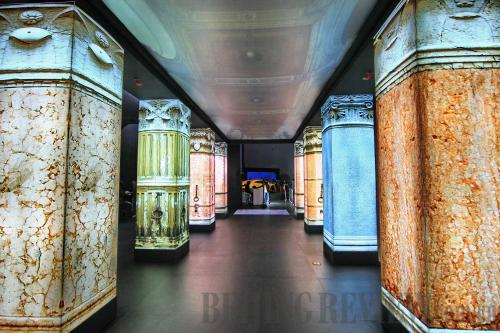|
 |
|
ITALIAN EXAMPLE: The Bologna Pavilion in the Urban Best Practices Area of the World Expo offers a sensory experience of different aspects of life in the 4,000-year-old city (YU XIANGJUN) | Some cities have exhibited a wide range of eco-technologies; we can choose to employ these technologies ourselves here in China.
Good urban development examples are provided in the UBPA, as well as exhibitions on the urbanization of Chinese villages. Minghua Town in north China's Tianjin and Tengtou in east China's Ningbo have taken different approaches to urbanization. I would say there are no good or bad practices.
Will you specify which cases are suitable for China's urban development?
Many Chinese cities have exhibits in the UBPA, displaying different methods and strategies. These cases represent Chinese ways of urban development.
A nation's urbanization process is specific to its overall development process and is influenced by various political, economic, social and cultural factors. The urbanization process usually parallels a nation's economic development. We cannot solve every problem brought about by urbanization through technology. We also need to rely on public policies, institutional regimes and changing cultural concepts.
We have to use advanced ideas and thinking rather than focusing only on technologies. Take garbage disposal, for instance. We used to simply burn most of our refuse. But then we learned a new concept from Taipei called "zero landfill." This practice simply consists of classifying garbage into different categories. With this method, annual disposal in Taipei has dropped from 15 million tons to just 500,000 tons, of which 80 percent is recycled for further use.
In another instance, to counter the energy crisis some cities have not only developed new energy-efficient vehicles, but also created new neighborhoods for residential houses and office buildings. They have also created bike lanes so people don't have to drive or commute to the office. This solves transportation energy problems as well as encouraging an ideal way of living.
How will the theme of the Expo affect future urban development?
By hosting the Expo, Shanghai will soon realize a dream of becoming a desirable city to live in. We are already drawing on the experience of other places. Hangzhou has already built bike lanes based on the model of Odense in Denmark.
I hope Shanghai will host some kind of world city conference after the Expo ends, so that the best concepts of urban development and the best urban practices can live on in the city and in China. | 